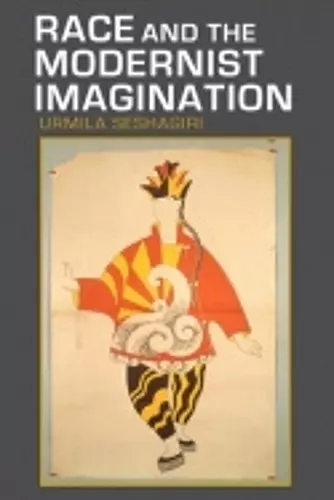Race and the Modernist Imagination
Format:Hardback
Publisher:Cornell University Press
Published:15th May '10
Currently unavailable, and unfortunately no date known when it will be back

Race has long been recognized as a formative element of American modernism, but its role in England is less clearly understood. While critics have examined race in the works of British writers such as Kipling, Conrad, and Forster, they have done so mostly from a postcolonial perspective. In Race and the Modernist Imagination, Urmila Seshagiri finds that race—as a matter apart from imperialism—served as an engine for the creation of new literary forms by a wide range of writers, including Oscar Wilde, Ford Madox Ford, Katherine Mansfield, Rebecca West, and Virginia Woolf. In Seshagiri's view, race provided these writers with a set of tropes and plots that rejuvenated the British aesthetic tradition: new ideas and fresh forms found their way into British literature through characters and settings that evoked other peoples, other places.
In addition to her readings of a fascinating array of works—The Picture of Dorian Gray, Heart of Darkness, The Good Soldier, To the Lighthouse, Orlando, and the short stories of Mansfield and West—Seshagiri considers examples that fall outside the usual purview of British modernist literature, such as Sax Rohmer's Dr. Fu Manchu tales, the avant-garde review BLAST, and Vita Sackville-West's travel writings. Throughout, she places her subjects within their social and cultural contexts: British Chinatowns, avant-garde cabaret clubs, exhibitions of African art, and dance performances by the Ballets Russes. Urmila Seshagiri's interdisciplinary study reveals a common core of race in the modern imaginary and, more broadly, establishes race as a crucial concept for understanding the cultural field of modernity.
Charting a history of racial theories from monogenism to polygenism, evolution, eugenics, and degeneration, Seshagiri shows how the underlying concern of racial discourses is chiefly that of continuity and heredity versus discontinuity and indeterminacy. Race and the Modernist Imagination is a vital and necessary contribution to literary and visual studies of British modernism. Its readings of a wide swath of canonical and noncanonical literature are, on the whole, incisive, remedying the fatal blind spot of race in the making of British modernism.
* MLQ *Seshagiri's book establishes that the modemist Anglo-British imagination is indeed a racial imagination. Not simply scanning for racism or racial blind spots, she instead reveals the myriad ways that these writers carve out abundant textual space for multiple negotiations of racial difference even as they simultaneously, and problematically, render the terms of art inseparable from the terms of race. She thus sharpens our ability to see how these modemists negotiated their ways through the charged racial fields of the early twentieth century and, with varying effects and uncertain intentions, made art within that field. Timed perfectly to crown a decade of more limited studies of race in British modemism. Race and the Modernist Imagination meanwhile confirms the need to retain race as a key term in ongoing studies of class, sexuality, empire, and transnationalism in modemism.
-- Laura Doyle * Woolf Studies ReviISBN: 9780801448218
Dimensions: 229mm x 152mm x 25mm
Weight: 907g
272 pages